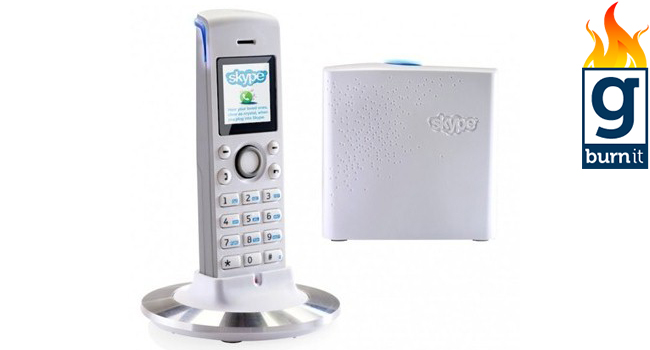Anthropic says its AI will not be used to spy on customers, even in government contracts. Here is what that means for AI governance, enterprise trust and defence partnerships.
Skype DUALphone review: an overly-expensive novelty


Ever wanted to chat to a friend over Skype without being forced to sit at a desk staring at a computer screen? Behold Skype’s DUALphone 4088, a cordless telephone that lets you strike up conversations with friends overseas without the burden of having to see their face.
It all comes in a sturdy box bearing an Ethernet cable, a landline cord and a docking base (plus charger). Plug the Ethernet cable and landline cord into their respective homes and you have a phone capable of making not only Skype calls but… you guessed it, landline calls too. Truly no one can begrudge the DUALphone of a misleading name. Nor does it require a PC to run. Logging in to an existing account is very easy, while new users can create a Skype account from the phone itself.
Nineties woes
But here’s the problem: the DUALphone 4088 seems strangely adverse to the norms of 21st century life. What’s wrong with speaking to friends over PC with video chat enabled? Isn’t the core Skype experience aimed at seeing, as well as hearing? And in a day and age where cellphones offer hundreds upon thousands of different functions, you can’t help but wonder: why now? Even the small colour display harks back to late ‘90s cellphones. And the very idea of a portable phone that replaces the traditional landline telephone seems laughably antiquated.
Yes, as a portable telephone, the DUALphone 4088 is very good. Audio quality, from one landline to another, is excellent. And it’s nice to be able to browse your Skype contact list while you idle about the house, find a friend online and be in conversation seconds later, whether they’re close to home or thousands of miles overseas. The DUALphone 4088 is Skype on-the-go, minus any video. Indeed, it might well benefit businessman wanting to make conference calls while they wander the office; the range is decent enough that you can head outside for quite a way before signal is lost.
Pricey problems
But again, this novelty was lost years ago to an invention named the cellphone. The biggest gripe is the price itself. You might consider the DUALphone 4088 a neat novelty item that combines the core Skype experience with the added bonus of making landline calls. But at R1 300 (approximately US$148) this is not a novelty item. No, the DUALphone 4088 is intended to be a phone you make concerted use of. It is, in a sense, a tool intended to supplant every other phone in your house. Thus, the ideal Skype DUALphone 4088 user has an extended list of family members living overseas, a laptop or PC that has recently imploded and a cellphone that balks at the mention of a “colour screen.” Oh, and a broadband internet connection to boot.
Indeed the DUALphone 4088 is blighted by anachronistic design and a series of contradictions. For one, it’s a Skype phone — yet devoid of any video. It proudly states it doesn’t require a PC to run – but relies on a broadband internet connection to function. And best of all, it’s a landline telephone — that costs over R1 000.
To be fair, it looks nice and it feels great in your hand. It comes in two different colours: white or black, and the buttons are responsive. But praising these aspects of the phone feels ludicrously insincere: cellphones have long offered colour screens and responsive keys, while Skype is free to download on any laptop circa 2003 and newer. The 4088 also happens to be the successor to the 3088, but barring a button that lights up when you have unread voicemail, it’s difficult to pinpoint what’s changed.
Novelty value
Conceivably the DUALphone 4088 might well find a home with frequent Skype users who warm to the idea of a good-old fashioned phone in their hand. Skype has revolutionised the way we speak to friends and family overseas; it’s a cost-effective model that has rightly won its plaudits. But the DUALphone is so strangely antiquated that it’s difficult to recommend. You might one day earn back the money you initially spent on the 4088, making use of Skype phone calls to relatives overseas, but given that this service is offered to PC users free of charge, it’s difficult to recommend spending over R1 000 on the “novelty” of chatting on-the-go.
Ross Griffiths, Project Manager at Nology believes the 4088 “is the phone of the future, combining two different voice communication technologies.” But if a portable telephone running on two rechargeable AAA batteries is the sign of things to come, it’s not a future we’re necessarily ready to accept.
